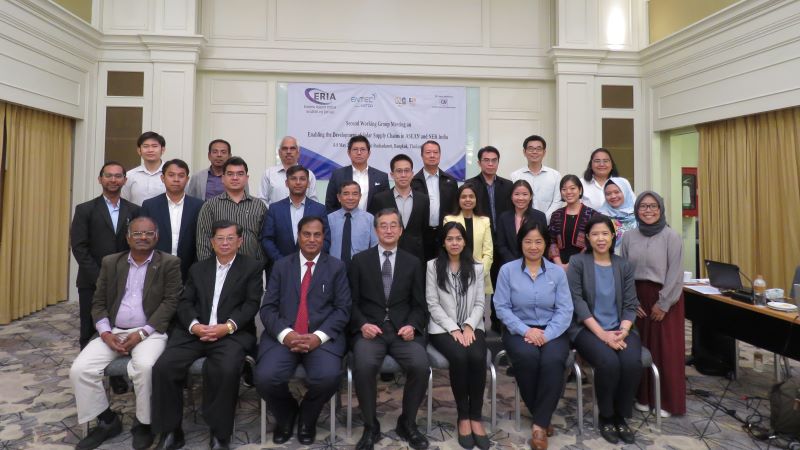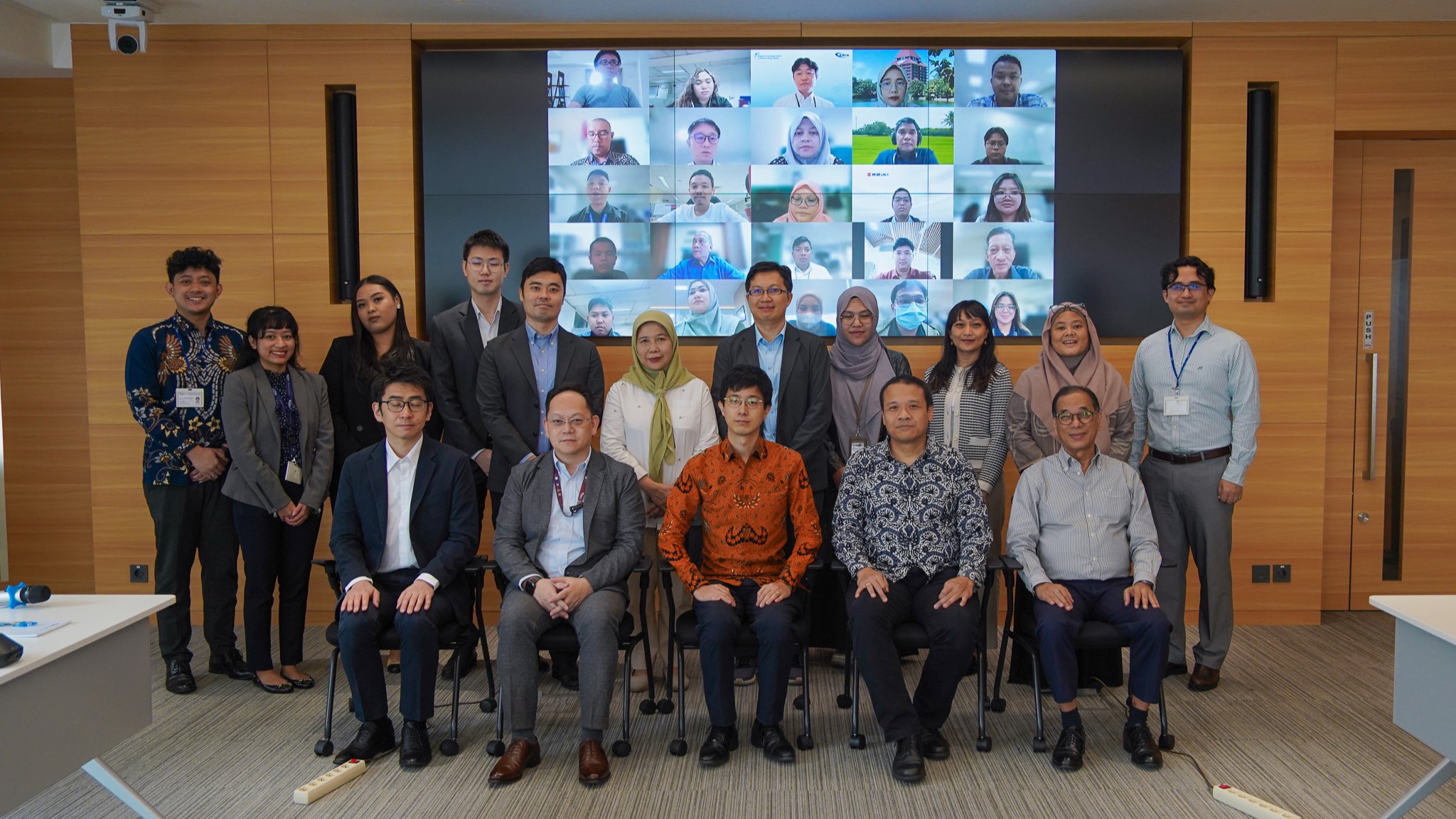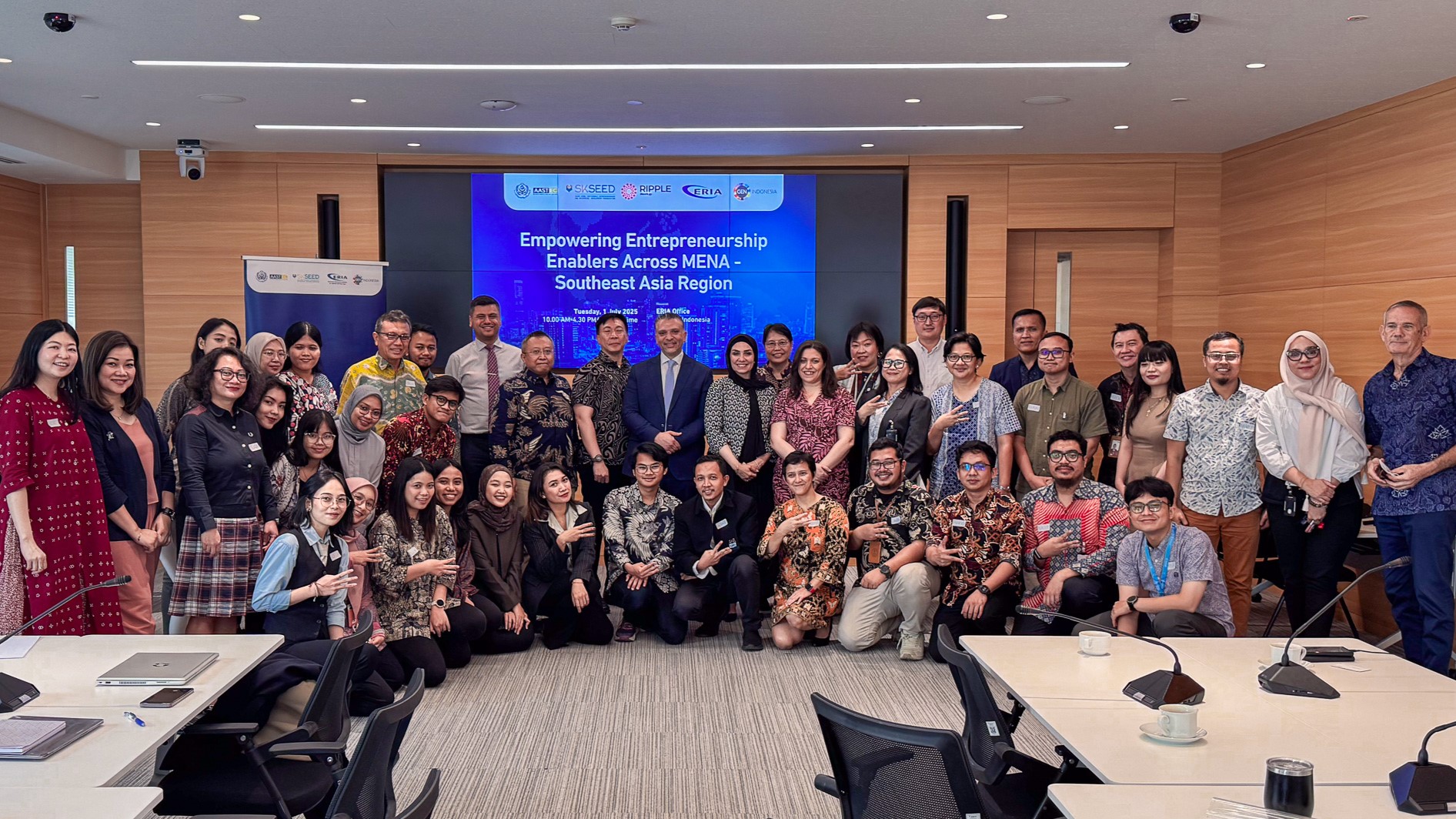ERIA-ENTEC-CII Jointly Organize a Business 20 Side Event on Enabling the Development of Regional Solar Supply Chains
Share Article:
Print Article:
Bangkok, 8–9 May 2023: The Economic Research Institute for ASEAN and East Asia (ERIA), in cooperation with the National Energy Technology Centre of Thailand and the Confederation of Indian Industry, organised a 2-day workshop on Enabling the Development of Solar Supply Chains in ASEAN and the North-eastern Region (NER) of India. The participants discussed priority areas of the G20 India’s renewable energy supply chain and validated the key findings of the study on securing solar supply chain in ASEAN and NER India. The study aimed to identify and develop strategies, standards, and requirements for the creation of regional solar supply chains in ASEAN and NER India; identify factors needed to establish international cooperation imperatives, such as government-to-government and business-to-business amongst India, ASEAN, and Japan to diversify solar supply sources in the East Asian Summit countries; and examine the potential for the development of integrated solar manufacturing hubs, the promotion of clustered research, and the development of project funding and low-cost financing to support solar photovoltaic (PV)-based mini-grid systems in NER.
The first-day discussions focused on analysing the current and future potentials of local production of solar power systems at the country level. Thematic papers and country assessment reports examined key policy variables, possibilities, and barriers in developing resilient solar supply chains in ASEAN and NER India. On the second day, a roundtable discussion was held to validate the key findings and crystallise opinions and critical information from key representatives of solar value chains in ASEAN and NER India on how to move forward to realise regional solar supply chains. A visit to the Solar Power Technology Co. Ltd., Bangkok, provided the working group members with first-hand knowledge of Thailand’s solar manufacturing process.
Prof Fukunari Kimura, ERIA’s Chief Economist; Dr Lily Eurwilaichitr, Assistant Executive Director of National Energy Technology Center, National Science and Technology Development Agency; and Mr Watcharin Boonyarit, Director of Solar Energy Development Division, Department of Alternative Energy Development and Efficiency, Ministry of Energy, Thailand, gave remarks during the opening session. Dr Venkatachalam Anbumozhi, ERIA’s Director of Research Strategy and Innovation, and Ms Monika Merdekawati, Research Analyst of Sustainable and Renewable Energy Department, ASEAN Centre for Energy presented papers that delved into the fundamentals of solar PV supply chain development in ASEAN and NER India.
Driven by promising solar energy potential in ASEAN (8,119 GW) and NER India (62,000 MW), several speakers highlighted the importance of solar energy in addressing energy poverty in ASEAN and NER India. However, they said, two major barriers remain: solar supply chains in both regions are at different levels of development and the region’s continues reliance on solar PV upstream and midstream supply chain component imports, particularly from China.
Also presenting papers were Prof Naoyuki Yoshino, Keio University, Japan; Ms Komal Biswal, Jawaharlal Nehru University, India; Prof VGR Chandran, University of Malaya, Malaysia; Dr Sarpanes Subramaniam, C&G Analytica, Malaysia; Dr Amornrat Limmanee and Dr Nuwong Chollacoop, National Energy Technology Center, Thailand; Dr Tsani Rakhmah, USAID Sustainable Energy for Indonesia’s Advancing Resilience, Indonesia; Mr Hang Dal, Myanmar Eco Solutions, Myanmar; and Mr Jyotishman Pathak, Indian Institute of Technology Guwahati, India.
All presentations described three key challenges in establishing regional solar supply chains in ASEAN and NER India: the unevenly distributed manufacturing points of solar supply chains in the regions; low manufacturing quality for locally built solar panels; and the lack of policy framework to strengthen the entire solar value chain. The papers recommended securing access to raw materials and rare earth metals at stable prices, upscaling industrial manufacturing capacity to meet regional and global demand, and promoting value added capacity through regulations and liquidity coverage ratio formulations.
Six discussants provided critical inputs on the study: Mr M.K. Balaji, USAID SEA Smart Program, Deloitte, Thailand; Prof Chettiyappan Visvanathan, Asian Institute of Technology, Thailand; Ms Madura Watanagase, USAID SEA Smart Power Program, Deloitte, Thailand; Prof Sengprasong Phrankonkham, National University of Laos, Lao People’s Democratic Republic; Dr Siripha Junlakarn, Energy Research Institute, Chulalongkorn University, Thailand; and Prof Sivanappan Kumar, Narasuan University, Thailand.
They pointed out the important role of crowdfunding and foreign direct investment in improving the production capacity and quality of solar PV components. They asked the experts who had presented papers to further analyse the role of capacity building, especially its implications to policy regulations—that frequently become bottlenecks—to streamline solar supply chains in ASEAN and NER India. They emphasised the need to use each country's comparative advantages in solar value chain to complement rather than compete with each other to develop resilient regional solar supply chains in ASEAN and NER India.
Attending the second day of the meeting were representatives from seven organisations that are key stakeholders in Thailand’s solar energy development: Mr Atiboot Petwisit and Mr Ahamad Salea, Thailand Board of Investment; Dr Manit Seapan and Dr Yaowanee Sangpongsanon, CES Solar Cells Testing Center; Mr Panom Parinya, Energy Regulatory Commission, Thailand; Mr Phuwadon Suntornwipart and Prof Dusit Kruangam, Thai Photovoltaic Industries Association; Dr Siripha Junlakarn, Energy Research Institute; Mr Veeradej Tejapaibul, Federation of Thai Industries; Mr Watcharin Pachittyen, Department of Alternative Energy Development and Efficiency, Ministry of Energy, Thailand.
The stakeholders presented several views on securing solar supply chains during the meeting. First, extensive market research is required to properly build project finance models and technological compatibility to enable the growth of solar supply chains in ASEAN and NER India. Second, it is worthwhile to begin long-term planning for export to the EU and the US as an incentive to expand the market potential of solar supply chains in ASEAN and NER India. Third, the critical role of public–private partnerships in bridging investment gaps in solar supply chains must be recognised. Finally, policies and regulations, which frequently impede solar energy development, must be streamlined. Viet Nam’s success story in transforming its solar industry to become one of the leading solar markets in ASEAN was described as a key lesson learnt.
The workshop was concluded with a mutual understanding that the current solar supply chains are geographically highly concentrated. To achieve future energy and climate security in ASEAN and NER India, the participants agreed that countries must work together to secure access to critical minerals, upscale local manufacturing capacities, and develop market demands. Following the study will be the publication of an analytical report that contains an overview of factors favouring regional supply chains in solar supply chains. These factors will take into consideration system integration, manufacturing, and feedstock as downstream, midstream, and upstream activities, respectively, that enhance collaborations between ASEAN and NER India. The report is intended to be a valuable resource for policymakers as they work to advance resilient regional solar supply chains in ASEAN and NER India.







